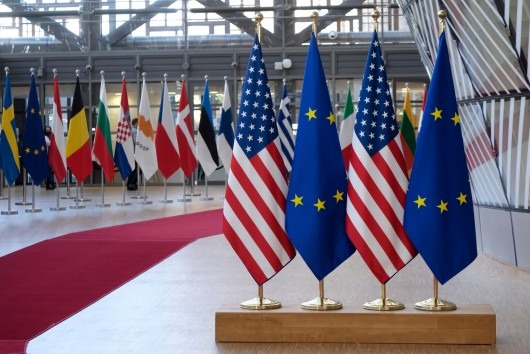US-North Korea Negotiations Expected to Resume

After a period of stalled diplomacy, expectations are rising for a potential resumption of negotiations between the United States and North Korea. This development comes as both nations signal a willingness to re-engage in dialogue, albeit with differing priorities and expectations.
Background
- Previous summits between US President Donald Trump and North Korean leader Kim Jong-un in 2018 and 2019 failed to produce lasting agreements.
- Negotiations broke down over disagreements on sanctions relief and the extent of North Korea’s denuclearization commitments.
- Recent months have seen increased tensions, with North Korea conducting missile tests and the US maintaining its sanctions regime.
Key Issues on the Table
- Denuclearization: The primary goal for the US remains the complete, verifiable, and irreversible denuclearization of North Korea.
- Sanctions Relief: North Korea continues to prioritize the lifting of economic sanctions as a precondition for significant concessions.
- Peace Treaty: Discussions may include the possibility of a formal peace treaty to end the Korean War, which concluded with an armistice in 1953.
- Humanitarian Aid: Addressing North Korea’s economic challenges and potential food shortages could be part of the negotiations.
- Missile Program: Limitations on North Korea’s missile development and testing are likely to be a key point of discussion.
Potential Approaches
- Step-by-Step Process: A phased approach, with reciprocal actions from both sides, may be considered to build trust and momentum.
- Interim Agreement: Negotiators might aim for a smaller, interim agreement rather than a comprehensive deal initially.
- Multilateral Involvement: Increased involvement from regional stakeholders like South Korea, China, and Japan could be explored.
- Working-Level Talks: A focus on sustained working-level negotiations, rather than high-profile summits, may be emphasized.
Challenges and Obstacles
- Trust Deficit: Overcoming the deep-seated mistrust between the two nations remains a significant hurdle.
- Domestic Politics: Political considerations in both countries could impact the flexibility of negotiators.
- Definition of Denuclearization: Agreeing on a common definition and scope of denuclearization continues to be challenging.
- Verification Mechanisms: Establishing robust verification protocols for any agreements will be crucial and complex.
Regional Implications
- South Korea: Seoul is likely to play a more active role in facilitating dialogue and potentially offering economic incentives.
- China: Beijing’s influence over North Korea and its interests in regional stability make it a key player in the negotiations.
- Japan: Tokyo will be closely watching developments, particularly regarding short and medium-range missile threats.
Potential Outcomes
- Partial Denuclearization: A phased reduction of North Korea’s nuclear capabilities in exchange for gradual sanctions relief.
- Freeze Agreement: A deal to halt further development of nuclear and missile programs without immediate denuclearization.
- Confidence-Building Measures: Agreements on issues like family reunions, cultural exchanges, or limited economic cooperation.
- Status Quo: Negotiations could stall again if fundamental disagreements persist.
Looking Ahead
The resumption of US-North Korea negotiations represents a critical opportunity to address one of the most pressing security challenges in East Asia. While significant obstacles remain, the willingness of both sides to return to the negotiating table offers a glimmer of hope for progress.
Success will require patience, creativity, and a willingness to compromise from all parties involved. The international community will be watching closely as these talks unfold, recognizing their potential impact on global security and regional stability.






